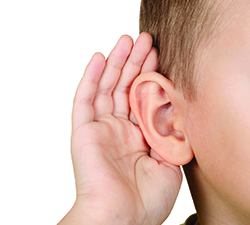GPP: Let’s Talk
Let’s Talk
 There’s an old idiom that says “talk is cheap,” meaning there’s a lot of talk but no results. However, in this instance talk is priceless. You should be doing a lot of it starting the day your child is born. Communicating early and often through smiles, talking, cooing, singing all count and set the stage for future success in language and interpersonal development.
There’s an old idiom that says “talk is cheap,” meaning there’s a lot of talk but no results. However, in this instance talk is priceless. You should be doing a lot of it starting the day your child is born. Communicating early and often through smiles, talking, cooing, singing all count and set the stage for future success in language and interpersonal development.
Your baby’s vocabulary grows exponentially in their first few years. Research has shown the more words they are exposed to the better. Be a talkative family!
| Birth to 1 | Repeat their sounds back to them: "ba ba" or "da da" | Model adult conversation by responding in a back-in-forth manner | Make eye contact when speaking and facial expressions | Plan for quiet time. Babies need time to babble and play quietly without TV or radio or other noises | Talk baby talk! The more words the better. |
| 1 to 2 | "Show me you nose" then point at yours. Help them learn body parts | Introduce short words like "cup" and "ball" | Read colorful books to your baby | Build on what your child says. If he says “ball,” you can say, “That’s your big, red ball.” | Hide a toy while she is watching. Help her find it and share in her delight. |
| 2 to 3 | Ask for help. Ask them to put their cup on the table or bring you their shoes | Teach your child to say their first and last name. | Have your child tell you the story of one of their favorite books | Give them multi-step directions | Keep naming new objects as you encounter them |
| 3 to 4 | Introduce them to children's picture dictionaries and letter books | Talk about emotional words such as, "sad, happy, angry, afraid" | The car ride home is the perfect time to talk about their day. Ask them to tell you about their favorite part of their day. | Talk baby talk! The more words the better. | Little ones love to hear a repeated story. Repeat the story or let them tell it to you with more details. |
| 4 to 5 | Keep playing rhyming games, naming objects, and new categories (i.e time words: today, tomorrow, yesterday) | Encourage them to talk with older peers and adults. Initiate more conversation. Let them order their next meal. | Talk about cause and effects. They understand simple explanations such as "If you eat healthy foods, you will grow big and strong" | Offer limited choices to help them gain a sense of control. Ask: Do you want to get dressed before or after breakfast today?" | Create safe opportunites for your child to express their BIG feelings. For example, if they are angry, instead of "Stop yelling." Try "Go to the bathroon and take some deep breaths." |
The important take away here is to just talk with your child as frequently as you can, sharing rich vocabulary.
You’ll also want to check in with your child care providers to see how they support language development. For instance, do they talk with the young children and give them time to share? Do they have multiple reading times throughout the day and how does music play into their day?
